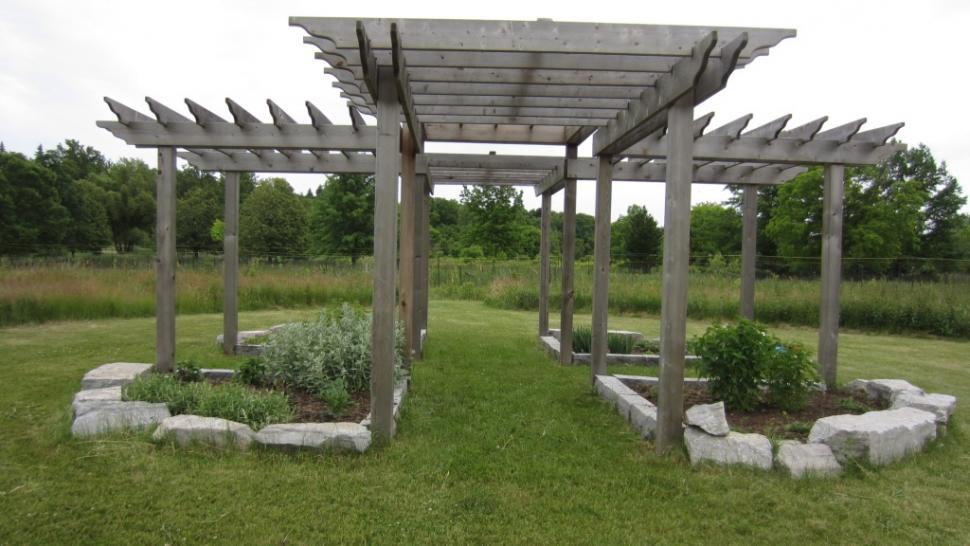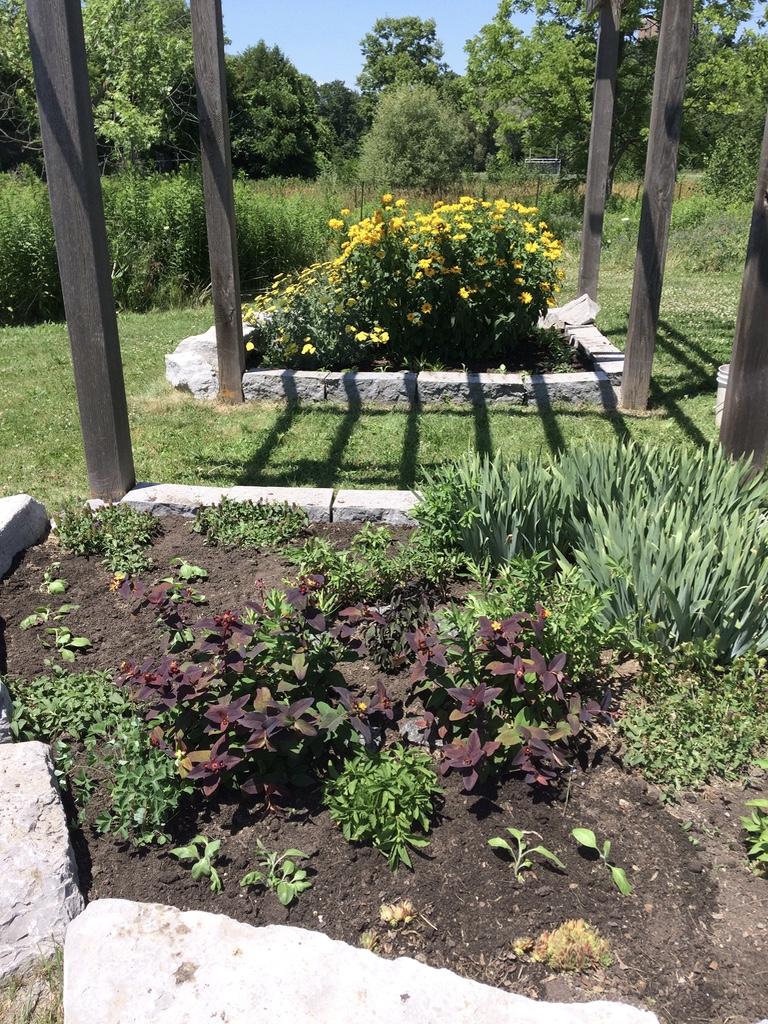
Lynn Short has spent more than a decade caring for the Medicine Garden at Humber College’s North Campus.
Short, a longtime Humber employee and Indigenous Education Specialist who recently retired, has been maintaining and caring for the plants in the garden since its inception. She lovingly tends to the garden to ensure it’s healthy and its plants are thriving.
“The plants must be well-tended to because they’re our relatives,” said Short. “They’re not just plants, they are a part of us and Mother Earth and we take care of them the same way we would for an auntie.”
Short explained that the Medicine Garden, which is located in the Humber Arboretum, is divided into four quadrants and the plants in each quadrant represent the four colours of the medicine wheel – red, yellow, black and white.
The plants include three of the sacred medicines; Asemaa (tobacco), Muskodaywushk (sage) and Weengushk (sweetgrass). The fourth, Geezhig (cedar), was used in the upper structure above the garden because small cedar plants, if added, would be eaten by deer. There are also many large cedar trees in the Humber Arboretum growing near the garden that represent the fourth sacred medicine.

The upper structure has seven cross pieces in each direction as a reminder of the Seven Gifts of the Grandfathers – wisdom, love, respect, bravery, honesty, humility and truth.
Short said the garden and its medicines are often used for ceremony. The medicines are harvested only by knowledgeable staff from Indigenous Education and Engagement (IE&E). It’s important to be respectful of the location and components of the garden, said Short.
Quazance Boissoneau, manager, IE&E, said the garden and its medicine can help ease the transition for Indigenous students leaving their homes and coming to Humber.
“I think it's important that we have it on campus because when students come from their communities, they're often leaving behind their access to traditional medicines,” said Boissoneau. “If we want our students to be comfortable and show up authentically at campus, we have to provide an environment that supports that.”
Outside of the traditional medicine it provides, the garden is also used as a teaching tool and gathering place. It was that for Indigenous Camp Choice, a summer program that brought Indigenous students together to experience the camp.
Humber’s Two-Eyed Land-Based Play & Co-Learning course is shaped by the traditional territories and lands that Humber is located on, is co-taught by Indigenous and non-Indigenous faculty, and is supported by IE&E as well as local and regional Indigenous Elders, Knowledge Holders, mentors and storytellers. It engages learners and faculty in respectful, reciprocal, and responsible Land-based relationships and experiences in the Humber Arboretum including storytelling, teachings, co-learning and reflection, in all seasons and weather.
“The Medicine Garden provides a place for learning about some of those teachings and it just feels right to be talking about those teachings in that kind of setting rather than in a sitting in a classroom,” said Short.
Boissoneau believes the garden is playing an important role in spreading awareness of Indigenous culture to all members of Humber’s community.
“We’ve had more and more non-Indigenous students come to us with more knowledge than before, so I think that having the Medicine Garden has been impactful for all students and is helping build a more understanding, respectful Humber community.”
An official opening of the Medicine Garden took place on June 22. Robin Wall Kimmerer, the author of Braiding Sweetgrass, shared her knowledge of traditional medicines and explored the four medicines that are now growing in the garden.
“It was a really good opportunity for the Humber community to come out and learn because these are really important teachings and knowledge,” said Boissoneau.
While Short hasn’t completely stepped away from the Medicine Garden, she has stepped back a bit. So, IE&E, with the help of the Humber community, will take over the care and maintenance of the garden going forward.